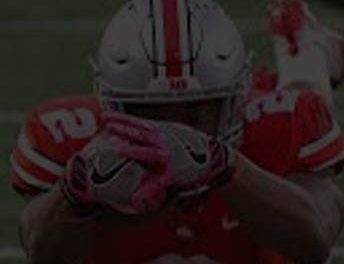
We all aim for winning, whatever field and track we get ourselves into. Our competitiveness would naturally come out when we are betting and entering in competitions. This principle is also fitting to horse racings because as we register our equine athlete in a race and as we bet for it, we make sure that it is hundred percent ready and confident that it bags the first place among the rest.
Today, many equine enthusiasts still search for answers to the question, ‘How to ensure victory in a horse race?’ They cannot be blamed because who wants to lose and go home with an empty pocket? I bet no one does!
So, to help you visualize yourself standing and receiving awards with your winning athlete in the podium, read on and observe the following indicators that your horse is ready for a win.
Signs That Your Horse is Ready to Race
Look at the Physical Appearance
There are instances that all you have to do is merely look at the horse, evaluate its physique, and assert if it’s well-conditioned for a run. Likewise, be keen in observing your horse’s movements before and during the race especially for grade 1 stakes races like 2019 Pegasus cup. Do not take for granted even a little bit of changes to your horse’s body because it could already mean something to its state, whether it is a positive or a negative sign.
An equine athlete is physically fit when it moves fluidly and when there is no trace of lameness in its every motion. Also, its haunches and racing dimple are well-creased. There should also be a slight bounce when it walks or when it takes a step. When you notice these demeanors in your racehorse, then you are good for a race registration!
Observe the Horse’s Reaction and Behavior

Like people, racehorses are also prone to mood swings that may significantly affect their performance in the track. There are few indications that their mood has changed and you should carefully take them in high consideration before getting your horses in the actual race.
When your horse is not receptive to the bit but spits or chew it anxiously, then it’s a sign that your horse is too eager to do something, whether to race on or run back. Being frightened or nervous can also be observed when your horse keeps on spooking. Also, when your horse jumps violently or kicks uncontrollably, it’s a strong indication that your horse is angry and feeling rebellious. If your horse exhibits the mentioned behaviors, you better think twice before listing it to a race!
Review Your Horse’s Past Performance
Comparing your horse’s previous racing performance may not sound so fair, but it can give you clues if it’s ready for a new race and if it could bring home the first rank. However, do not rely so much on its past performance because it does not entirely reflect its present condition and fate.
If your horse won its previous race, it does not guarantee that it would be victorious again on its current game. Similarly, losing your horse’s past race does not indicate that it would fail again. The point? Only use your horse’s previous experiences as a basis on handling and conditioning it better than before.
Assess Participation to Preliminary Conditioning
Before reaching the race field and in the actual race field, some preliminary activities are done to condition the equine athlete. How the horse responds to these activities shows its preparedness to give or not to give a good run.
Early in the morning, the horse must have a light breakfast, and it must finish and eat up the feed. Doing so without so many contradictions may indicate that the horse is fit enough for the race day. The horse’s willingness to repeated jogging, galloping and walking back and forth in a few minutes as warm-up activities is a sign that it is controllable, obedient, and responsive. These hints signify good racing condition in your athlete.
Monitor Your Horse’s Heartbeat

Your horse’s heartbeat can tell you its condition. Its pulse and cardiovascular state must be carefully monitored before the race so you could assess in advance if your horse is ready for a long and heavy run. Thanks to modernization that heartbeat monitoring is not only relied on to veterinarians anymore because you can already manually do it yourself through the aid of some commercial heart-rate monitors.
Unusual reading of your horse’s heart rate can already mean something like your horse is suffering from an internal injury, fatigue and even disorder. It is in this say that heartbeat monitoring is done regularly most especially before the race day to ensure that your horse is not in pain and no factor restricts it from giving a winning run.
Takeaway
Horses are like humans too. Before getting into the actual battle, they are prepared to make sure that they are ready to give an excellent performance. Though there is no precise presumption of winning a competition, being cautious and compliant to some indicators will not harm. Besides, it is you and not your bettors who will decide if your racehorse is set for prominent racing like the pegasus world cup.








